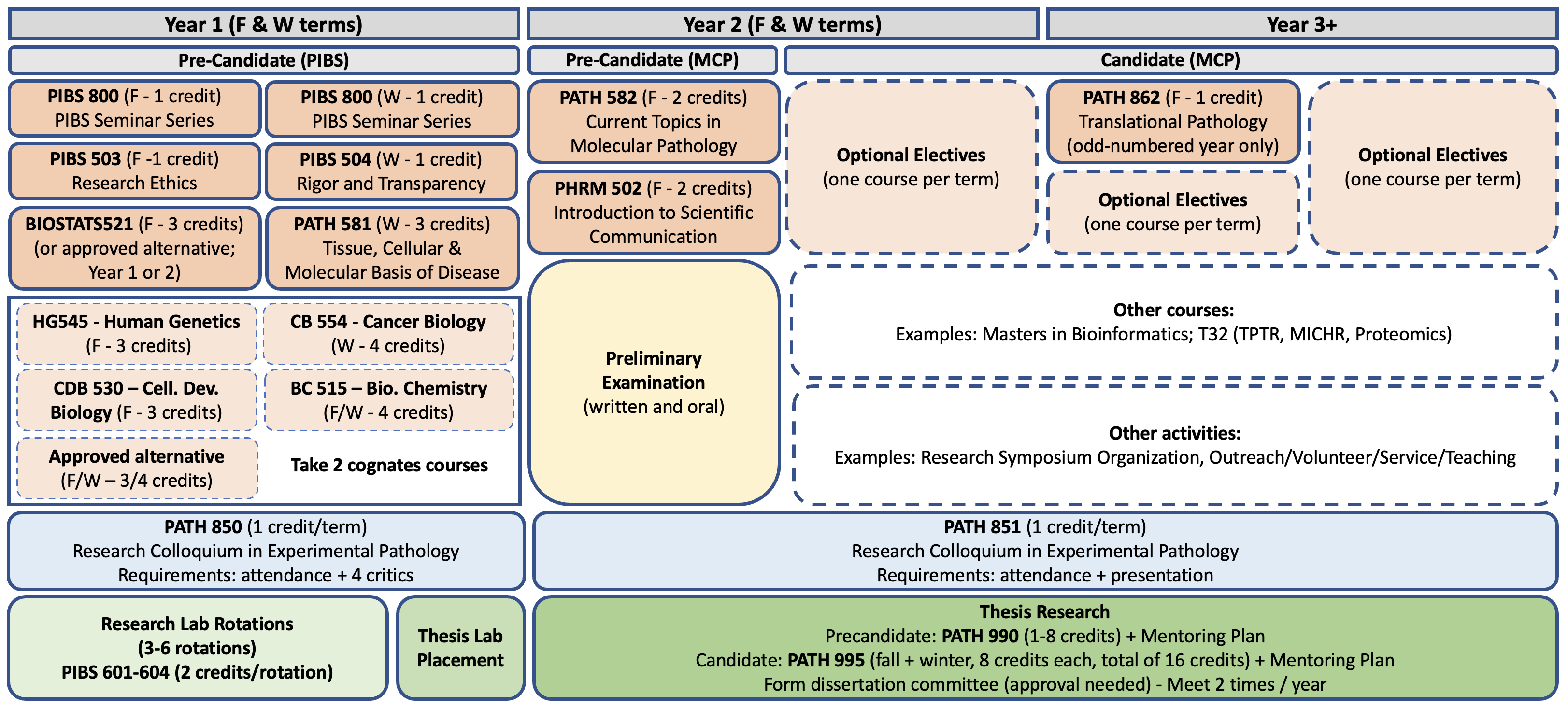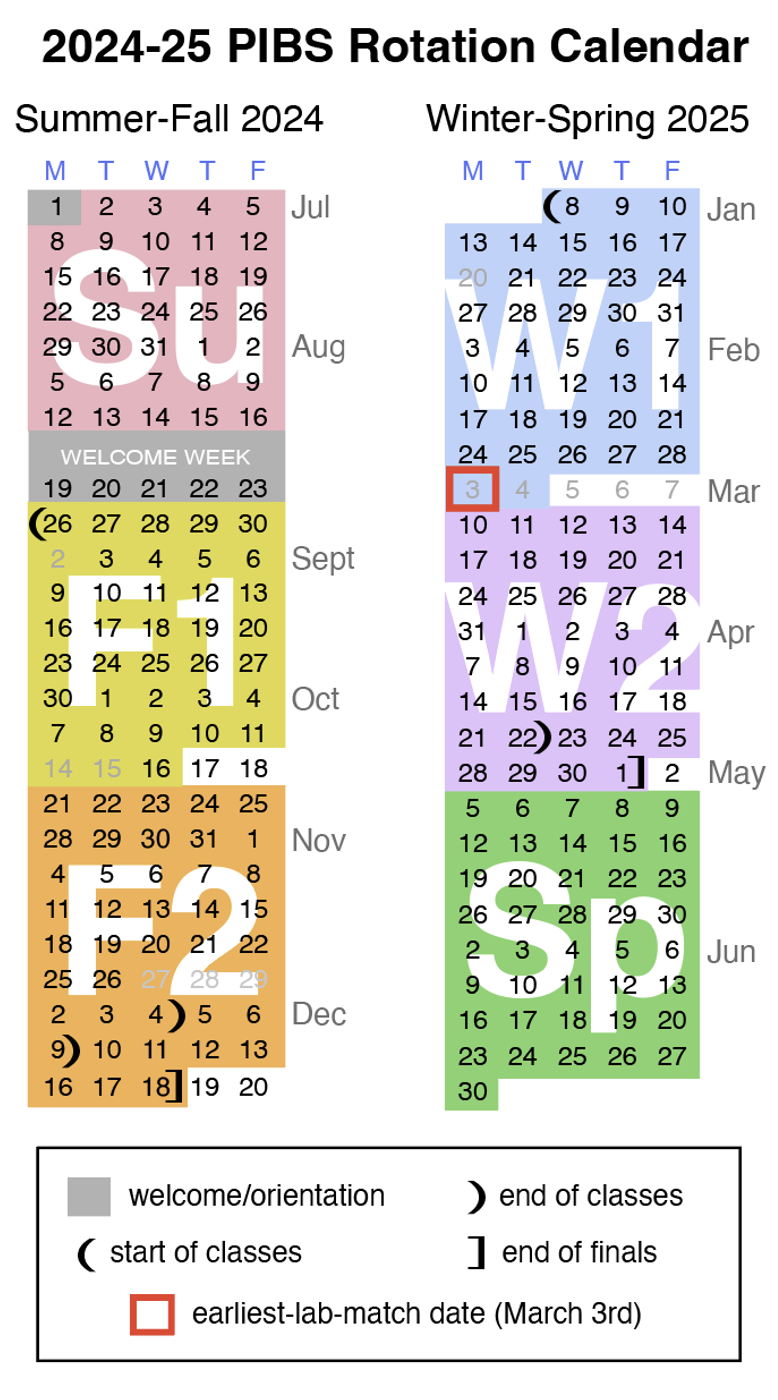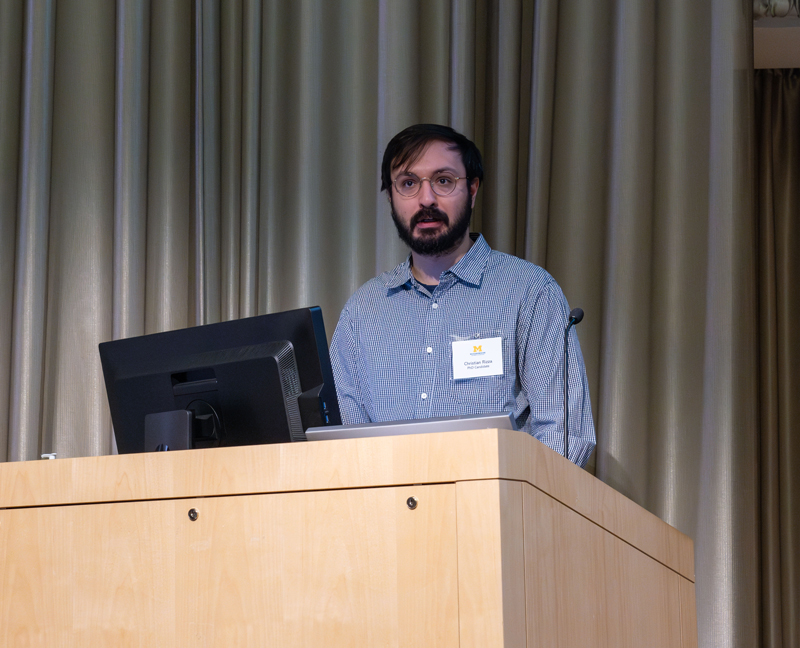

MCP students are immersed in a didactic and research culture that provides a solid foundation for the student’s training and progression toward becoming independent scientists. The MCP program integrates mentor-guided laboratory research with a comprehensive and customizable curriculum designed to both: i) provide a strong foundation in basic areas of biology for in-depth study of the molecular and cellular aspects of pathogenesis; and ii) meet the individual needs of each student towards their academic goals and career aspirations by providing a wide range of training options and opportunities, e.g., the embedded Master's Degree in Computational Medicine and Bioinformatics or the T32 Training Program in Translational Research. After passing the preliminary exam, students focus on their dissertation research project and are required to present each year at the Pathology Research Seminar Series. This departmental weekly series showcases visiting speakers, local research faculty, and trainees, thus providing MCP students with a stimulating learning environment.

Coursework
The MCP curriculum includes core courses designed to deliver graduate students with a strong background in basic areas of biological sciences, providing a rigorous intellectual foundation for the study of the mechanisms underlying the pathogenesis of human diseases. In their first year, MCP students attend two out of four basic science courses, including Human Genetics, Cell & Developmental Biology, Biochemistry, Cancer Biology, Computational Biology, or an alternative course of their choice. In their winter term, first-year students attend PATH 581, which introduces students to basic pathophysiologic mechanisms, the molecular basis for disease and the morphologic expression of human disease. In the fall term of their second year, MCP students take PATH 582, which introduces current topics in molecular pathology and emphasizes critical analysis of primary literature. Our diverse research faculty investigates a broad range of disease topics and integrates their knowledge into the course curriculum.
The MCP curriculum also includes in the third year a course in Translational Pathology designed to help meet the growing need for scientists and medical professionals who can bridge the gap between basic science and clinical practice. This multi-disciplinary course trains both graduate students and clinical residents in the methods and principles involved in translating basic science findings into clinically useful interventions to improve human disease outcomes. The central objective is to illustrate how basic science applied to human disease can lead to the discovery of its pathophysiology, which in turn can be used to develop therapeutics and diagnostic tests.
Last but not least, MCP students also have the flexibility to select electives reflecting their own interests from a wide array of specialized courses offered at the Medical School and throughout the University. Hence, MCP students can tailor their graduate education toward their own research goals and career aspirations.
Laboratory Rotations (year #1) and Dissertation Research (year #2-5)
The University of Michigan (U-M), which is ranked #21 worldwide, includes some of the top-ranked schools, including the Medical School, as well as a premier Hospital and Health Center. This unique opportunity for collaboration across many disciplines sets the stage for innovation and provides a strategic advantage when it comes to education, research, and patient care. Hence, U-M offers an exceptional interdisciplinary collaborative environment for the training of MCP students.
Throughout the first year of study, MCP students undertake three to six laboratory rotations with mentors of their choice. MCP students typically choose and join a laboratory to perform their dissertation project at the end of their first year. The research interests of the >35 MCP faculty mentors and their laboratories are diverse and include investigative programs in molecular and cellular mechanisms of cancer, immunopathology and inflammatory diseases, epithelial barrier biology, neuropathology and applied neurobiology, stem cell and developmental biology, epigenetics and gene regulation, aging, drug discovery, and experimental therapeutics, as well as biomarkers (diagnostic and prognostic). MCP laboratories are housed in state-of-the-art research facilities that are supported by a wide range of Biomedical Research Core Facilities, e.g., advanced genomics, epigenomics, proteomics, transgenic animal model, metabolomics, plasmid and vector, flow cytometry facilities, and other core services, where MCP students have the opportunity to develop a wide variety of technical skills by utilizing cutting-edge techniques.

Preliminary Examination
The preliminary examination ("prelim") aims to test the student’s ability to identify a novel scientific hypothesis and to develop a rational research plan to test this hypothesis. During the prelim, which is typically held during the fall term of the second year, a faculty committee evaluates the student’s capacity to communicate effectively about their research plan in both written and oral presentations. The research proposal addresses a student-selected topic relevant to the field of experimental pathology and may focus on the student’s planned thesis research ("on-topic"). On-topic prelim scientific exams jump-start student-mentor dissertation project discussions, offer feedback and critical review of the dissertation project by an external committee at a very early stage of its development and generate a research proposal foundation for future extramural fellowship applications.
Departmental Seminar Series
MCP students are broadly exposed to basic and applied research at weekly departmental seminar series, which showcase visiting speakers, local research faculty, and trainees, thus providing MCP students with a stimulating learning environment. Attending the pathology research seminar series helps students further develop their critical thinking and their presentation skills. Giving a presentation at this seminar series also provides students the opportunity to discuss their research projects in a scientific forum and to receive feedback on their work.

Teaching (optional)
MCP has no formal teaching requirement but offers optional access and training to students who wish to have a teaching experience.
Graduation Requirements
The main requirements for graduation from the MCP program include the generation of a comprehensive and coherent body of research work and the publication of one or more first-author peer-reviewed original research publication(s). The MCP program is designed for students to graduate within ~five to six years (5.2 on average).